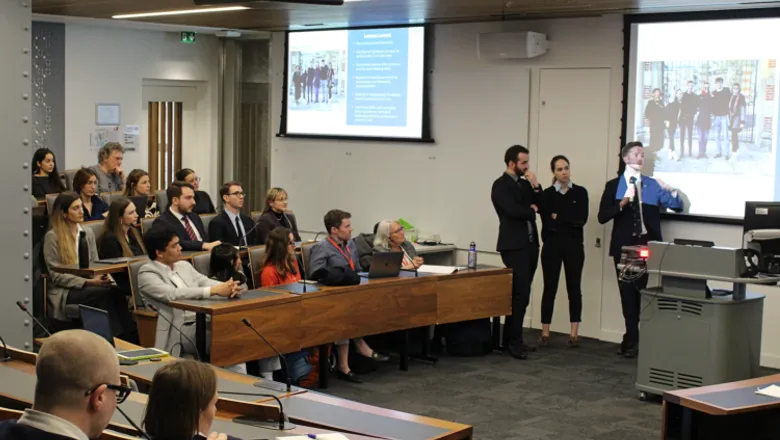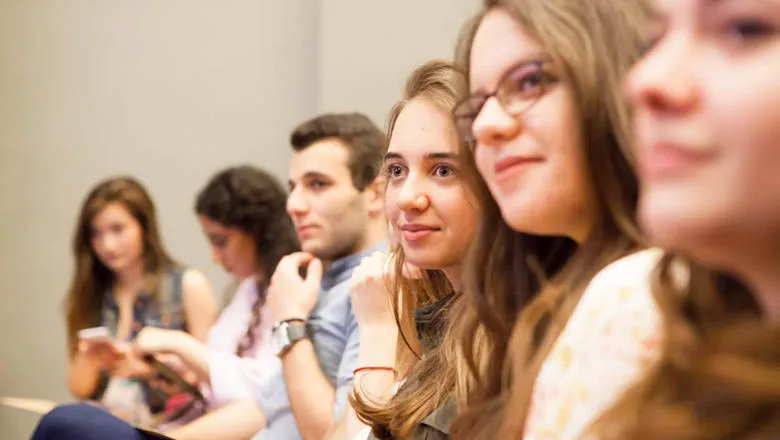
Dr Susan B. Martin
Senior Lecturer
Research interests
- Conflict
- Security
Biography
Dr Susan B. Martin is a Senior Lecturer in the War Studies Department at King’s College London. In her work she uses International Relations theory, particularly structural realism, to analyse state policies on chemical, biological and nuclear weapons, deterrence and coercive diplomacy more generally, and economic competition among states. Currently she is completing a book manuscript, Taboos or Consequences: The Role of Normative and Instrumental Factors in US Decision-Making on the Use and Non-use of Chemical, Biological and Nuclear Weapons in the Vietnam War. Other projects focus on chemical weapons use in Syria as well gender and CBN weapons.
She received her BA in Political Science from Yale University and her MA and PhD in Political Science from the University of California, Berkeley, where her doctoral dissertation was on balancing in the economic realm. She was a Post-Doctoral Fellow at the Christopher H Browne Center for the Study of International Politics at the University of Pennsylvania, and has taught at Wesleyan University, the University of Pennsylvania and Florida Atlantic University.
Research
- Applications and development of structural realism and international relations theory more broadly
- Chemical, biological and nuclear weapons in international politics - their proliferation and use as well as efforts to deter and control
- Deterrence and other coercive strategies; Security Studies more broadly
- International conflict and cooperation, including balance of power theory
- Science and technology studies
Teaching
- Weapons of Mass Destruction in International Politics (BA3)
- Proliferation and International Security (MA)
- Structural Realism and Key Debates in International Politics (MA)
- Hacking for Defense (MA)
PhD supervision
PhD supervision for projects that use international relations theory (especially realism) to explain puzzles in international politics. I am also interested in projects that focus on nuclear, biological and chemical weapons issues; deterrence and compellence; and balance of power debates.
Publications
- ‘The Future of Chemical Weapons: Implications from the Syrian Civil War’ (with Geoffrey Chapman and Hassan Elbahtimy), Security Studies 27:4 (2018), 704-733.
- ‘Norms, Military Utility, and the Use/Non-use of Weapons: The Case of Anti-plant and Irritant Agents in the Vietnam War,’ Journal of Strategic Studies 19:3 (2016), 321-364. Winner of the 2016 Annual Amos Perlmutter Prize.
- ‘The Continuing Value of Nuclear Weapons: A Structural Realist Analysis,’ Contemporary Security Policy 34: 1 (2013), 174-194.
- Terrorism, War or Disease? Unraveling the Use of Biological Weapons (edited with Anne L. Clunan and Peter Lavoy). Palo Alto, CA: Stanford University Press, 2008.
- ‘Chemical, Biological and Nuclear Weapons: Lessons from the Conflict in Iraq’ in The Conflict in Iraq, 2003, edited by Paul Cornish. London: Palgrave Macmillan, 2004, 175-199.
- ‘Realism and Weapons of Mass Destruction: A Consequentialist Analysis’ in Ethics and Weapons of Mass Destruction: Religious and Secular Perspectives, edited by Sohail H. Hashmi and Steven P. Lee. New York: Cambridge University Press, 2004, 96-110.
- ‘From Balance of Power to Balancing Behavior: The Long and Winding Road’ in Perspectives on Structural Realism, edited by Andrew K. Hanami. New York: Palgrave Macmillan, 2003, 61-82.
- ‘The Role of Biological Weapons in International Politics: The Real Military Revolution.’ The Journal of Strategic Studies 25: 1 (2002), 63-98.
Research

Research Centre in International Relations (RCIR)
The Research Centre in International Relations conducts research on practices of security and conflict, their transformation, and their social and political implications.
News
War Studies students develop solutions to address national security challenges
As part of the 'Hacking Defence Problems' module, MA students worked with the Ministry of Defence in addressing emerging threats and security challenges,...

Giving students the skills they need to succeed in a globalised world
The Departments of War Studies, Chemistry and Informatics are pleased to announce the launch of their new innovative online module for students, ‘Professional...

Events

Hacking Defence Problems Student Presentations
Join us to hear final student presentations from the Department of War Studies’ ‘Hacking Defence Problems’ module.
Please note: this event has passed.
Research

Research Centre in International Relations (RCIR)
The Research Centre in International Relations conducts research on practices of security and conflict, their transformation, and their social and political implications.
News
War Studies students develop solutions to address national security challenges
As part of the 'Hacking Defence Problems' module, MA students worked with the Ministry of Defence in addressing emerging threats and security challenges,...

Giving students the skills they need to succeed in a globalised world
The Departments of War Studies, Chemistry and Informatics are pleased to announce the launch of their new innovative online module for students, ‘Professional...

Events

Hacking Defence Problems Student Presentations
Join us to hear final student presentations from the Department of War Studies’ ‘Hacking Defence Problems’ module.
Please note: this event has passed.
